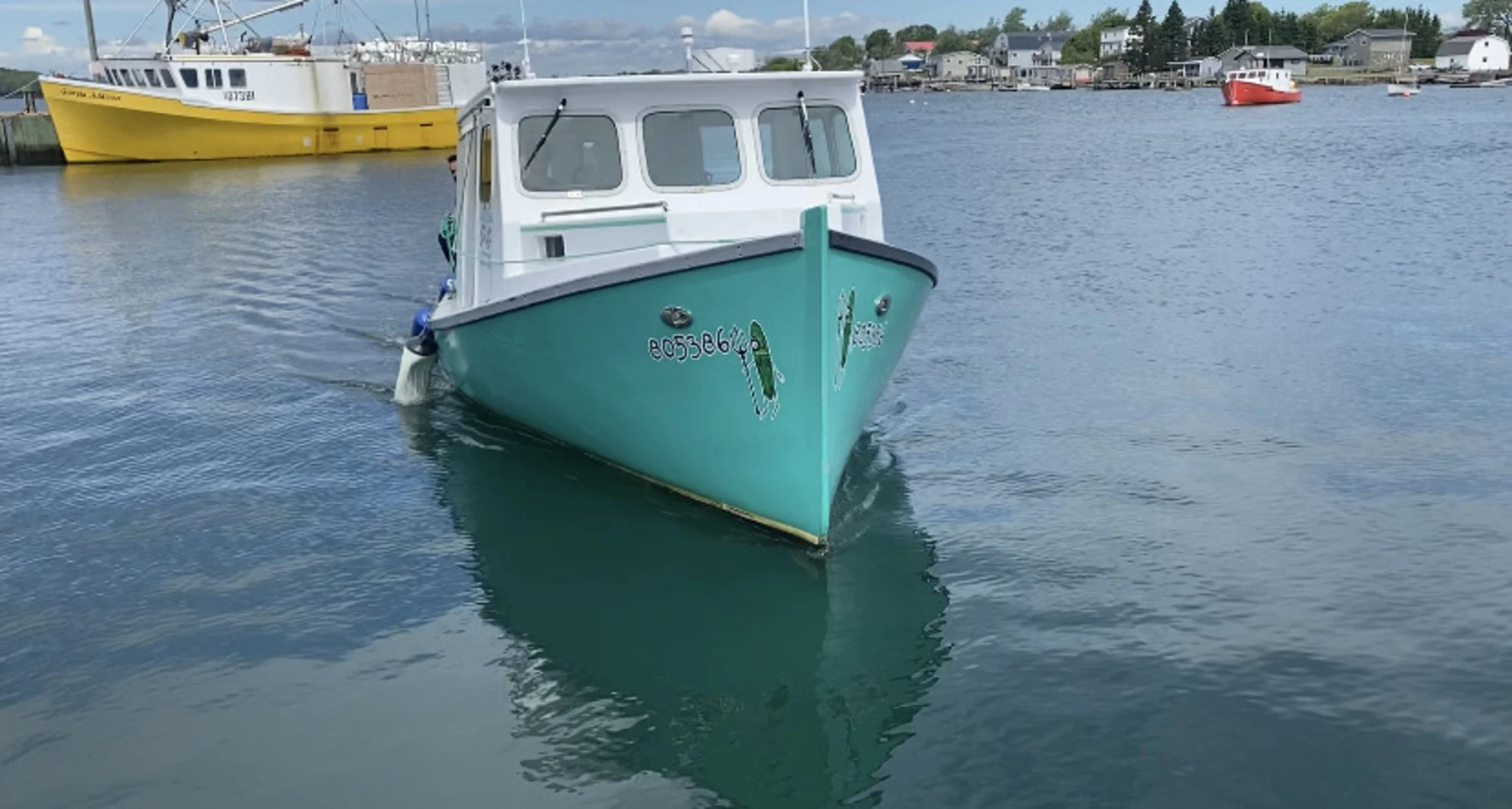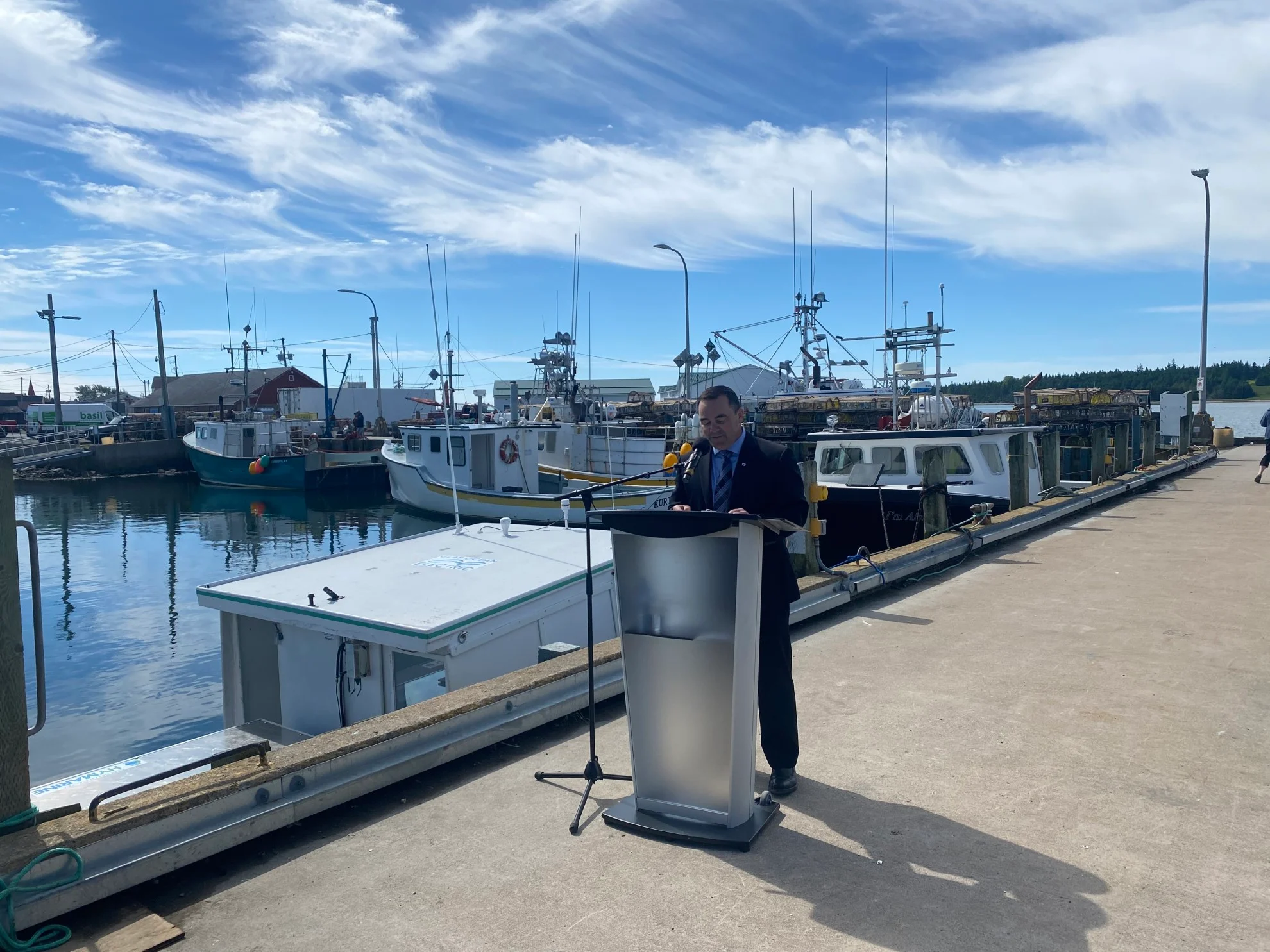
Electric lobster boats: Bringing future resiliency to energy infrastructure
Nova Scotia is the largest exporter of seafood in Canada and the fund sets out to invest $6.5 million over the next three years
It's called The Sea Cucumber. A prototype diesel electric hybrid fishing boat made by Glas Ocean Electric in Nova Scotia.
If you plug it in, it'll charge overnight. It has 98 kilowatt hours, so you could drive to your fishing ground on diesel, operate for six to eight hours on electric power, then head home on diesel.
"You can take your eight hour day now, and replace six or seven of those hours with cheap electric power instead of diesel power," Glas Ocean Electric Director of Engineering Brad Purdy tells The Weather Network.

The Sea Cucumber boat that was on display from Glas Ocean Electric | Nathan Coleman
The boat, which could produce fuel savings from 50 to 70 percent, was on display as part of a Nova Scotia government announcement of a new Fisheries and Aquaculture Energy Efficiency Innovation Fund for the province.
Glas Ocean electric is one of the first two research projects to receive support from the fund.
"Starting today, we're accepting proposals for projects that increase energy efficiency, reduce emissions, or collect data and information that can be shared broadly," announced Nova Scotia Fisheries and Aquaculture Minister, Kent Smith.

Nova Scotia Fisheries and Aquaculture Minister Kent Smith announces the innovation funds | Nathan Coleman
Nova Scotia Seafood Alliance executive director, Kris Vascotto, took to the podium set up on a working fishing wharf in Eastern Passage to tout the fund's potential.
"This program will act as the seed needed to bring costs down, demonstrate success and bring future resiliency in our energy infrastructure and our ability to withstand future climate related natural disasters," said Vascotto.
Nova Scotia is the largest exporter of seafood in Canada and the fund sets out to invest $6.5 million over the next three years.
"The 150 members of the Nova Scotia seafood alliance are facing the very front end of climate change. From changing fisheries, climate related natural disasters, clear through to the rising cost of the very energy that helps translate the wild caught fish and seafood into a $2.6 billion contribution to the provincial economy. Every member is feeling this pinch," added Vascotto.
In a press release, the province says working with an on-site manager from EfficiencyOne, members of the industry have carried out 100 efficiency projects, reducing emissions by more than 5,600 tonnes, equal to taking 11,000 cars off the road, over the past three years alone.











